Agroforestry: producing without destroying
May 11 is the International Endangered Species Day. For more than 50 years, Fondation de France has been involved in protecting the environment, along with those that care for it, to protect biodiversity. With the firm belief that new agricultural models mindful of ecosystems need to develop, has supported agroforestry projects since 2018.
Are trees the future of agriculture? This is the assumption that underpins new agroforestry practices. The approach consists in combining trees, hedges, crops and livestock all in one plot of land. Agroforestry offers many benefits, including the preservation of water tables, soil fertilization, disease and pest control, microclimate development and biodiversity.
Whereas intensive agriculture has reached its limits and the damage it has generated is notorious (porous soils, limited yields, extinction of species), the pandemic we are going through confirms the need to develop production systems that promote biological diversity. At the same time, citizens’ growing desire to go back to eating healthy food and protect the environment reinforces the usefulness of these sustainable farming practices.
Bringing together local players to preserve the living world
To encourage this change of approach, the Fondation de France Agroforestry Program supports operational projects for action-research and experimentation that combine researchers and actors on the ground (farmers, citizens, local players, etc.). Its goal is to initiate new growing and production methods that preserve ecosystems’ equilibrium.
Supporting low-impact and ecological forest management is one of its agroecological projects. In partnership with Réseau pour les alternatives forestières (Network for Forest Alternatives – RAF), Fondation de France supports forest owners, managers, loggers, wood haulers working with horses, saw mills and all those who enjoy forests, to contribute to the renewal of these practices, together.
Which is what happens in the Saône-et-Loire department, where Arbrazed, a cooperative led by François Bonnevialle, is involved in a responsible wood-forest trade: it raises the general public’s awareness of virtuous methods such as wood hauling using horses. The practice helps transport logged wood, thanks to animal power, with minimal impact on the forest environment.
Picture report
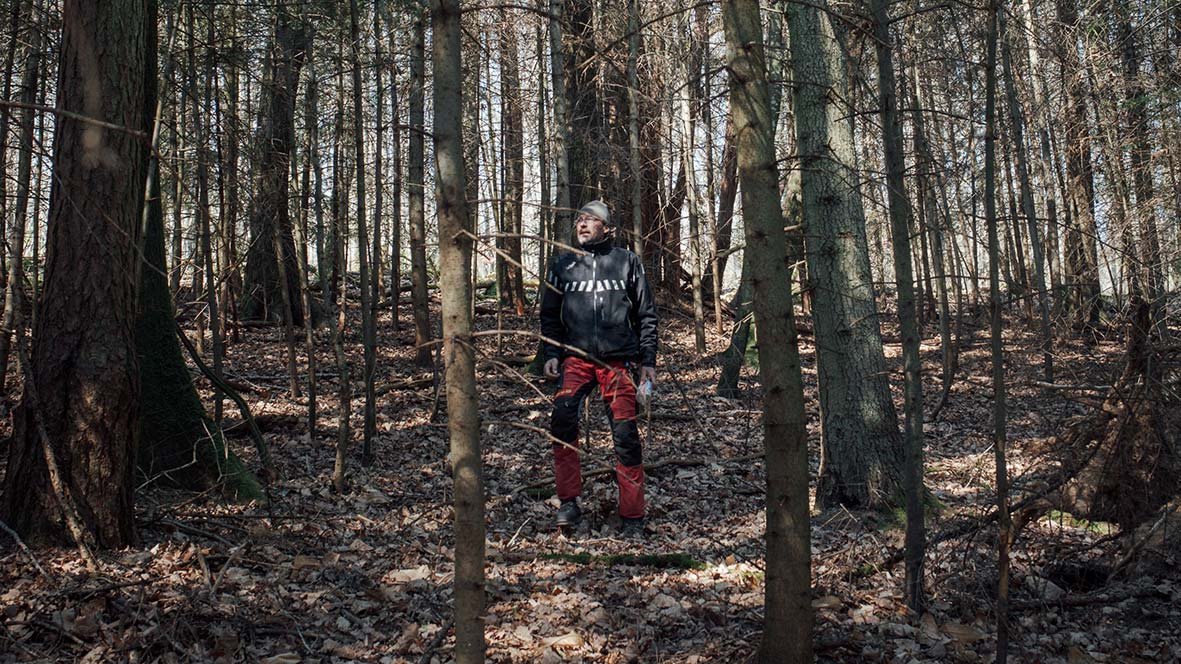
The Vineuse-sur-Frégande forest is a communal forest, located in the Saône-et-Loire department of the Bourgogne-Franche-Comté region.
© cyril marcilhacy
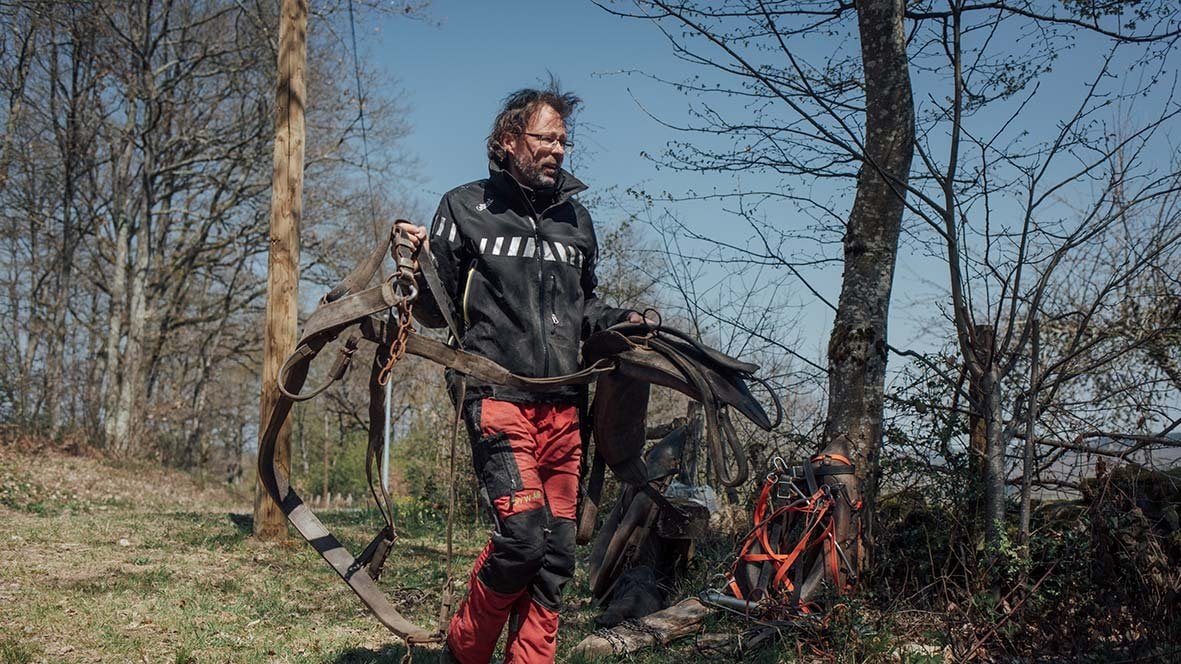
François Bonnevialle, from the Arbrazed cooperative, gets ready to equip the horse for hauling wood.
© cyril marcilhacy
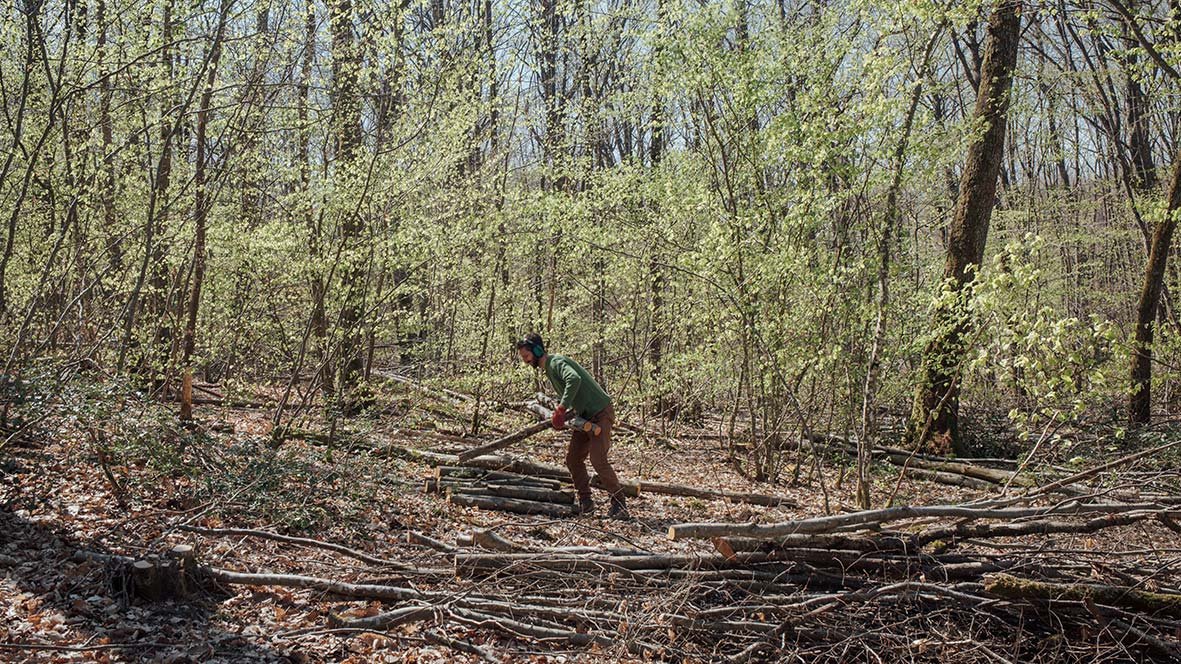
Logged wood, ready for transport.
© cyril marcilhacy
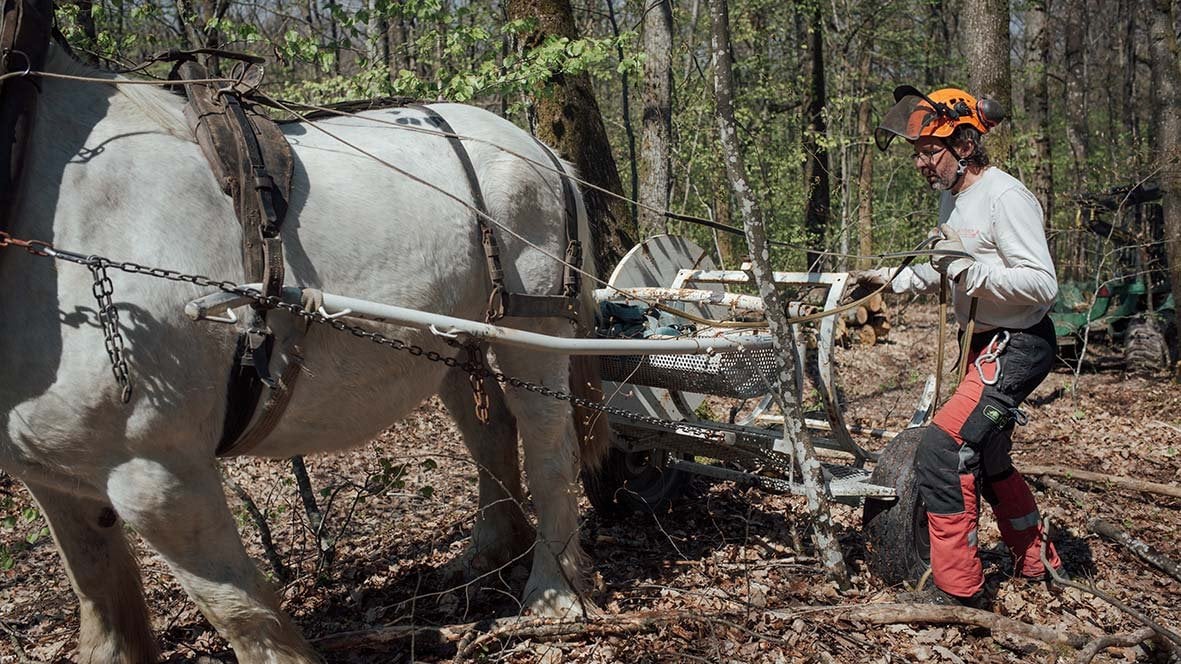
Using horses for wood hauling has minimal impact on the forest environment.
© cyril marcilhacy
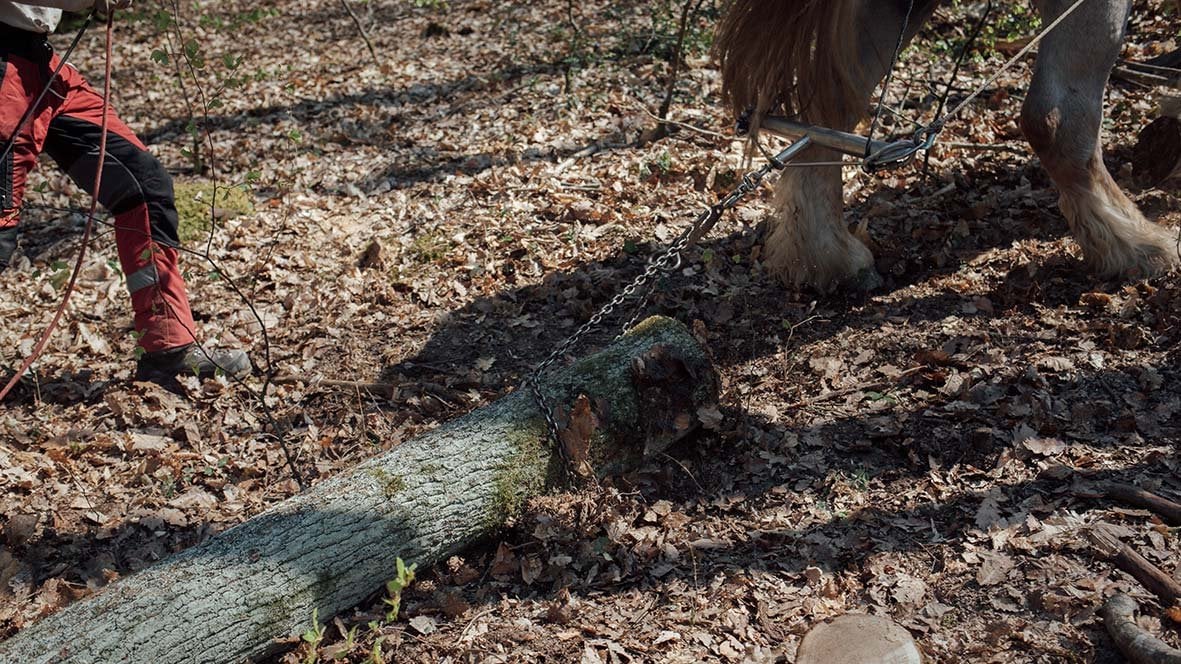
The horse’s progress is slow and does not damage the soil’s ecosystem.
© cyril marcilhacy
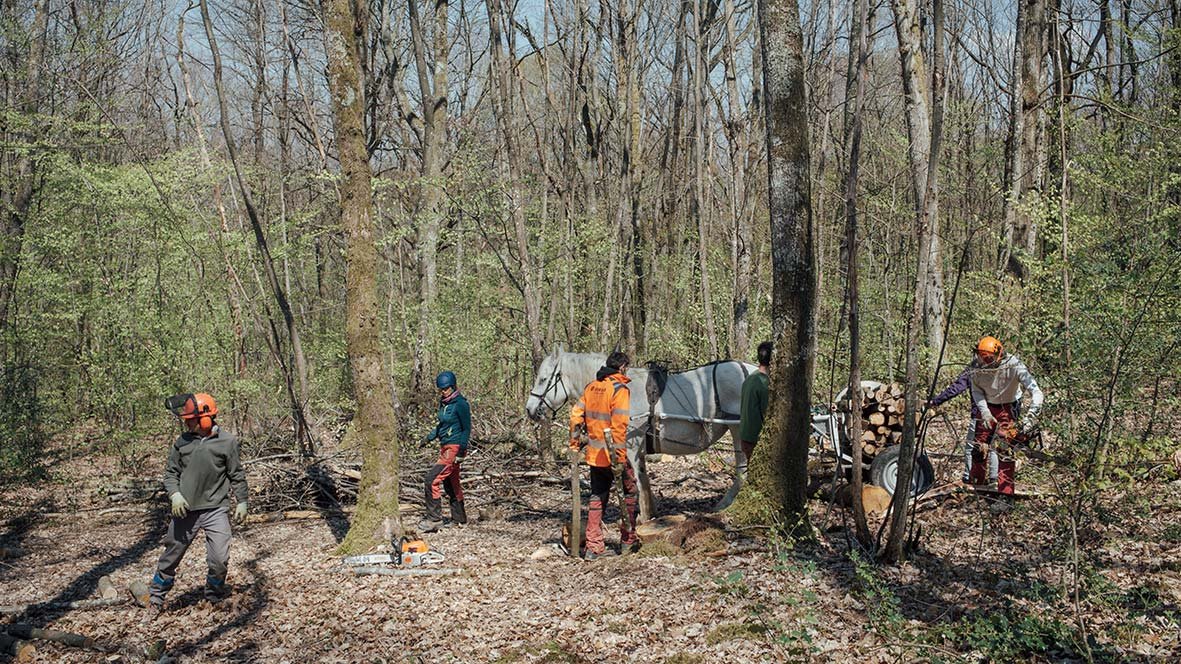
This wood hauling operation using horses is also an opportunity for the Abrazed cooperative to raise the public’s awareness of alternative and sustainable forest management methods.
© cyril marcilhacy
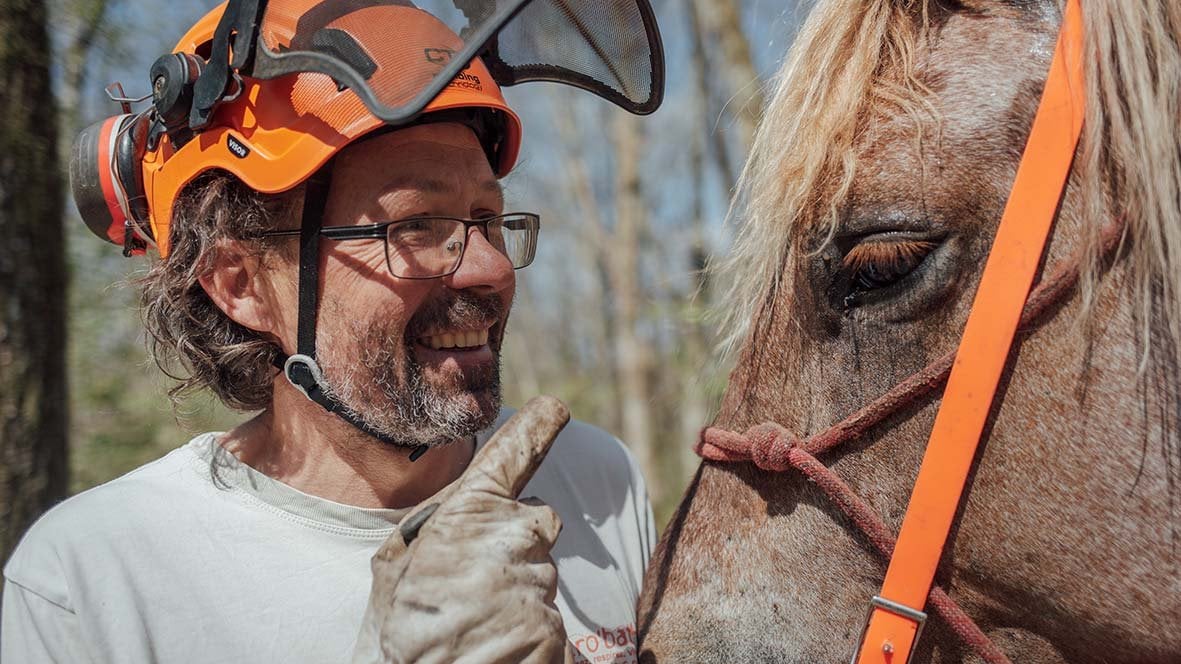
Recreating a more balanced relationship between humans and the living world.
© cyril marcilhacy
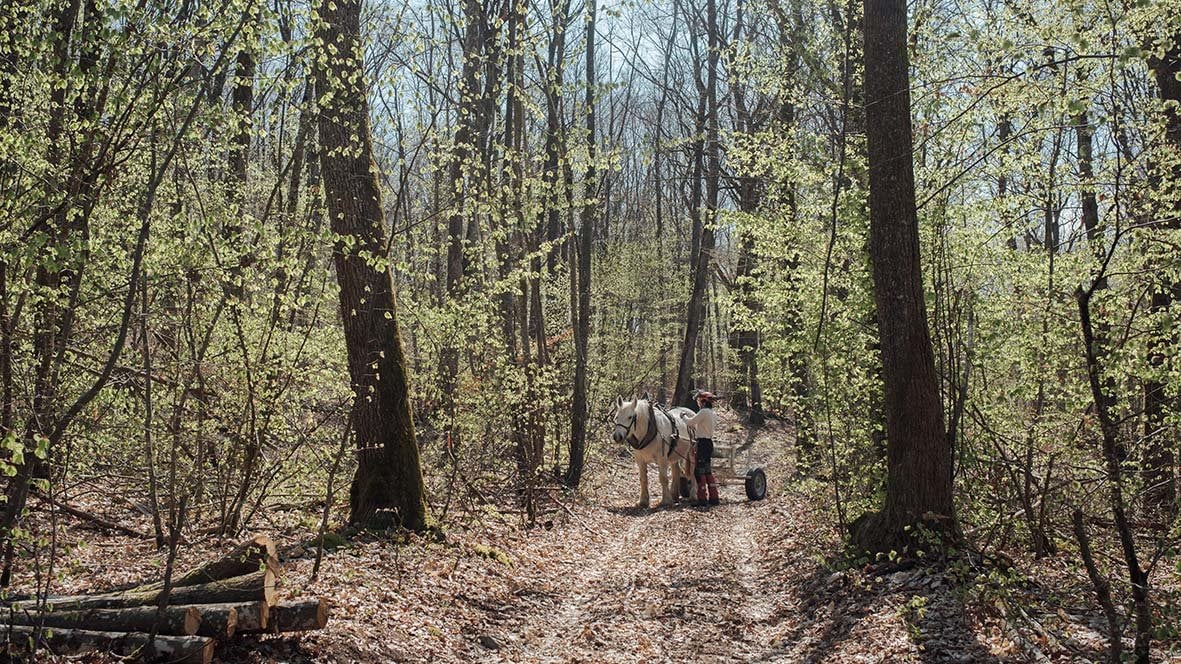
Low-impact forest management: one of the paths that lead to ecological transition.
© cyril marcilhacy
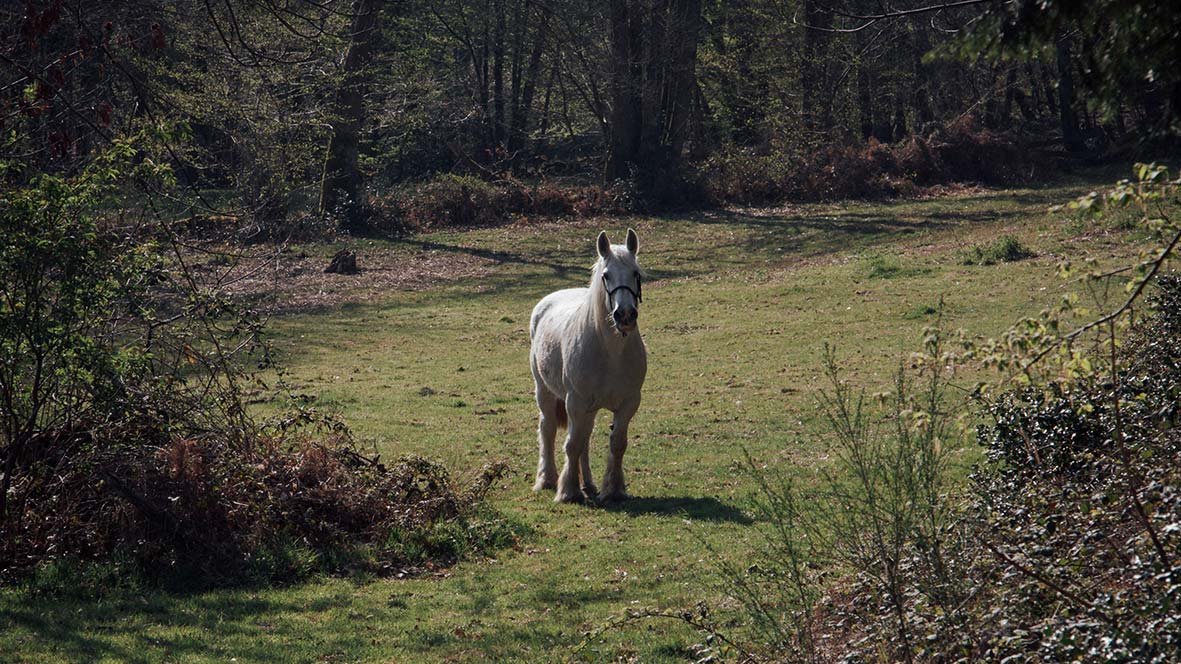
The forest neighbors pasture.
© cyril marcilhacy
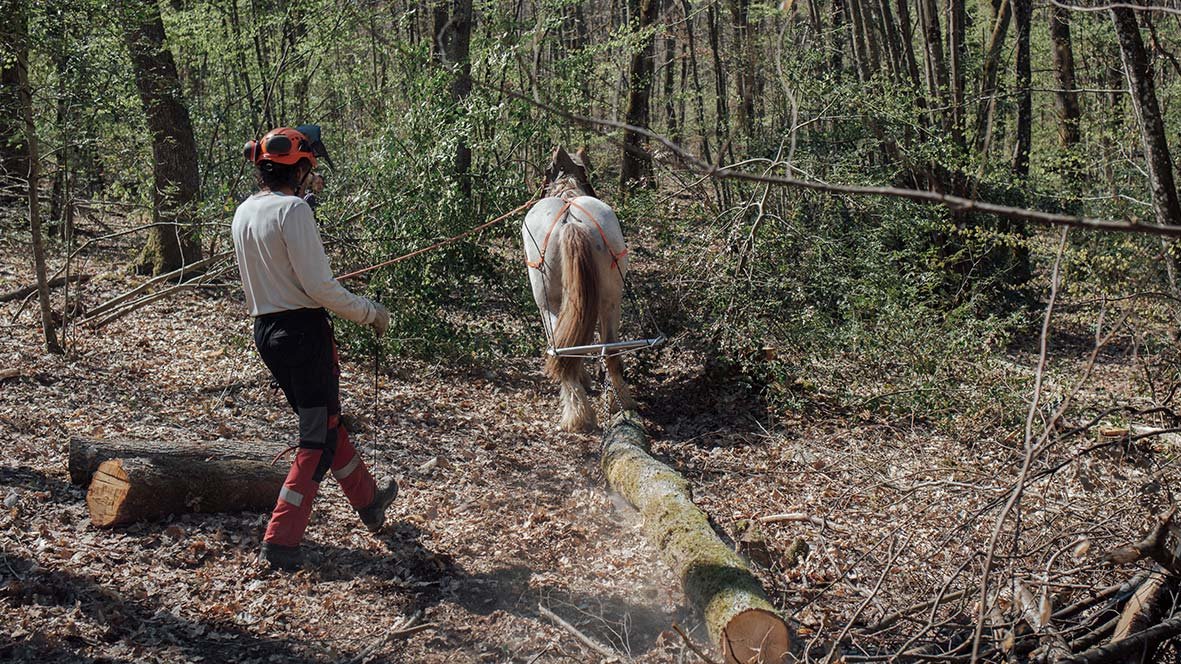
The horse’s progress is slow and does not damage the soil’s ecosystem.
© cyril marcilhacy
TO FIND OUT MORE
→ Food : better production and consumtion for humans and the planet
→ Understanding climate change and tackling it... fast!

